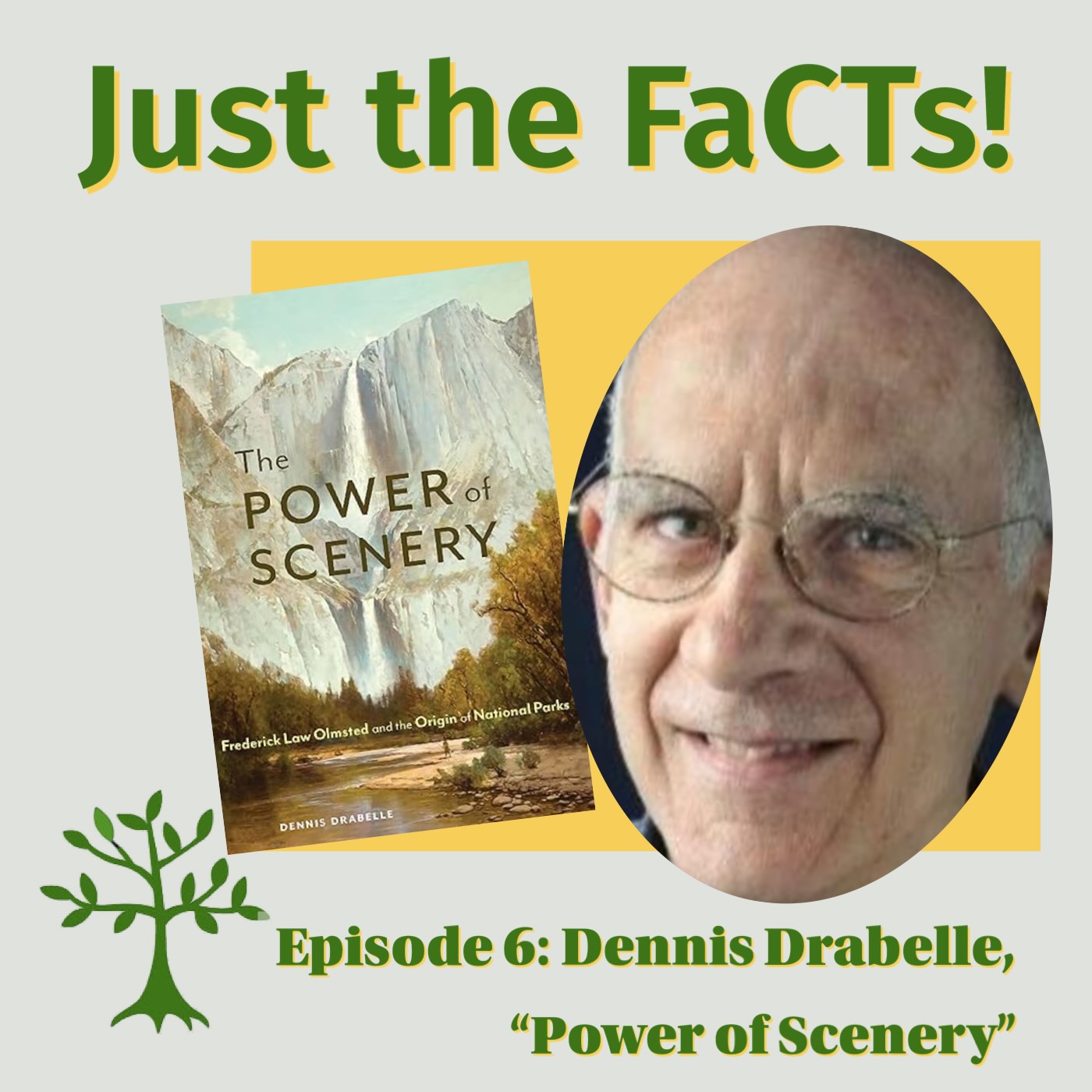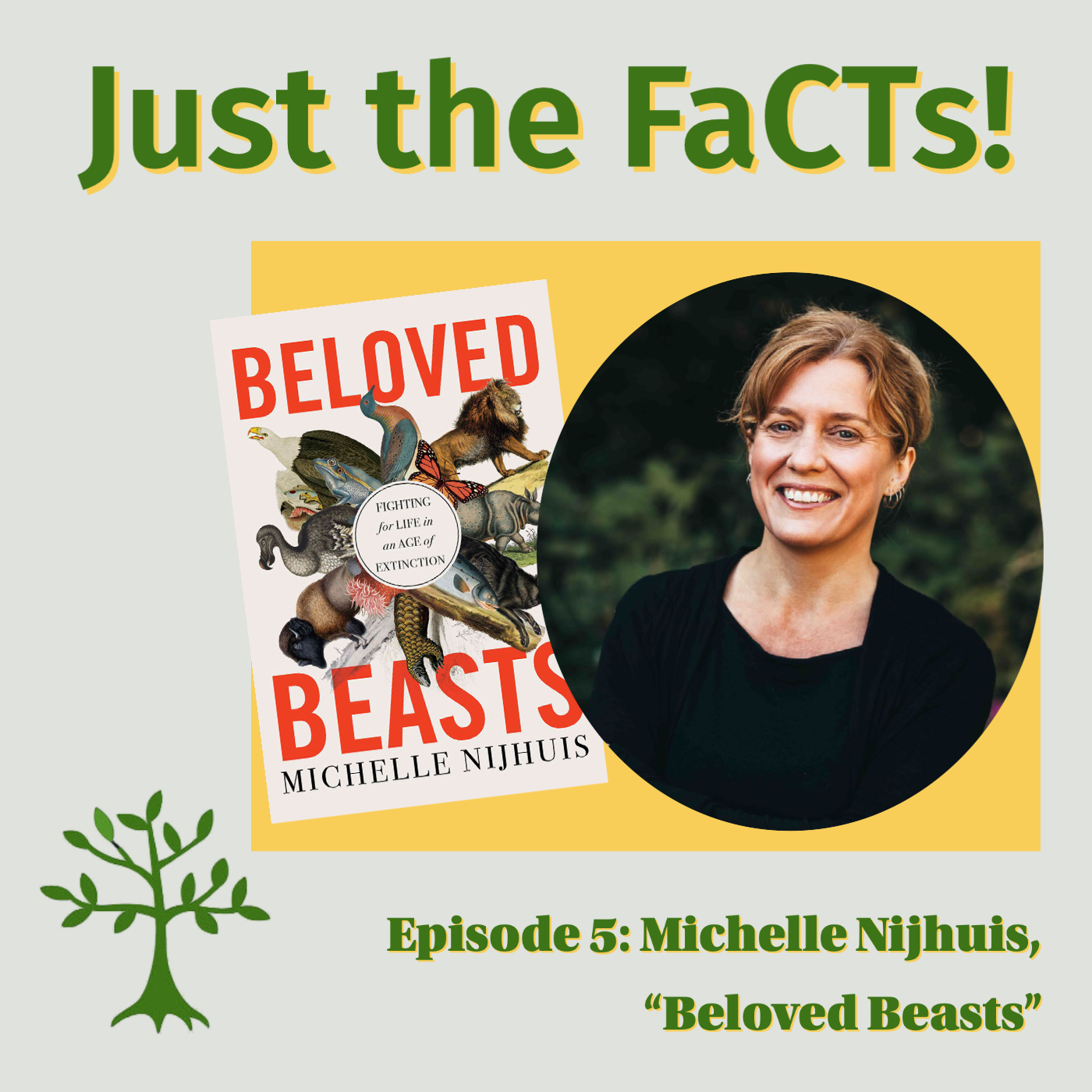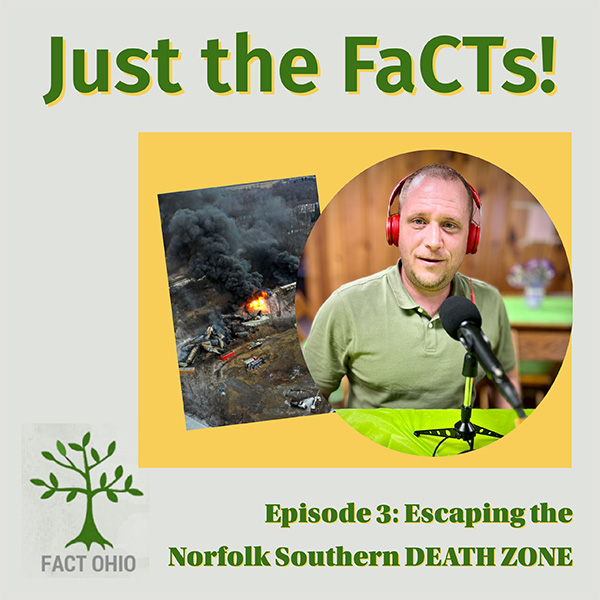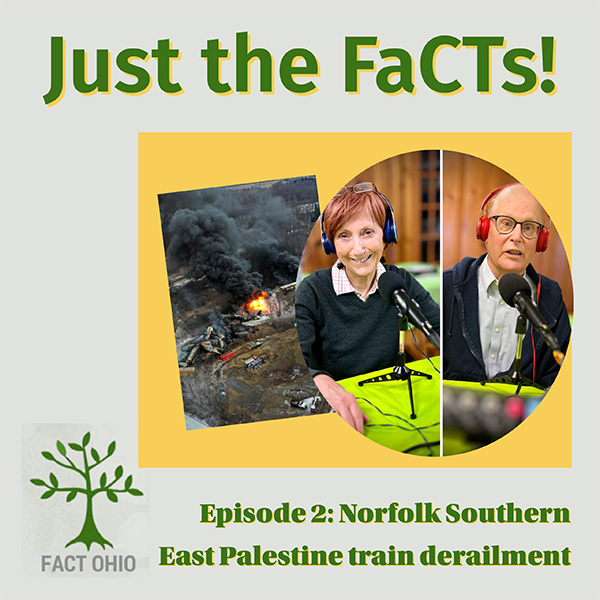Season 2 - 2024 Podcasts

In this episode of "Just the Facts," hosted by Mark Goode and featuring guest Justin Nobel, an acclaimed journalist and author, a dark and critical issue within the oil and gas industry came to light—radioactivity in oil field waste. Nobel, who spent seven years investigating and writing his book "Petroleum 238: Big Oil’s Dangerous Secret and the Grassroots Fight to Stop It," provides alarming revelations about the radioactive pollutants associated with oil and gas extraction that have been neglected by the industry and overlooked by governing bodies.
From the onset of oil extraction in 1859 to the fracking boom today, Nobel uncovers that not just oil and gas, but also radioactive materials, particularly radium, come to the surface during drilling. This has introduced an extraordinary new waste stream, producing approximately 3 billion gallons of briny wastewater every day in the United States alone. If placed in oil barrels, these waste fluids could reach the moon and back nearly 28 times in a year. Despite such staggering figures, the industry continues to grapple with what to do with this waste, often resorting to inexpensive and unscientific methods like discharge into unlined pits or injection wells, posing a significant threat to both the environment and public health.
Moreover, the issue extends to the invisible dangers faced by workers handling this waste. These individuals are often exposed to high levels of radiation without adequate protection or training, exacerbating health risks. The lack of accountability and transparency within the industry is shocking, given the potential for contamination and subsequent health ramifications. Regrettably, regulatory bodies, including the EPA and OSHA, have largely failed to address these issues, leaving communities and ecosystems at risk.
This revelation necessitates a call to action for greater scrutiny and accountability within the oil and gas industry. It’s no longer just about the environmental impact but a dire public health threat that demands immediate and robust action. By pushing for stringent safety measures and comprehensive waste management protocols, citizens can help hold the industry accountable and protect both workers and communities from the hazardous consequences of oil field radioactivity.

In this episode, Dr. Ted Auch, the Great Lakes Program Coordinator for the Fractracker Alliance interviews Dennis Drabelle, author of "The Power of Scenery."
Wallace Stegner called national parks “the best idea we ever had.” As Americans celebrate the 150th anniversary of Yellowstone, the world’s first national park, a question naturally arises: where did the idea for a national park originate? The answer starts with a look at pre-Yellowstone America. With nothing to put up against Europe’s cultural pearls—its cathedrals, castles, and museums—Americans came to realize that their plentitude of natural wonders might compensate for the dearth of manmade attractions. That insight guided the great landscape architect Frederick Law Olmsted as he organized his thoughts on how to manage the wilderness park centered on Yosemite Valley, a state-owned predecessor to the national park model of Yellowstone. Haunting those thoughts were the cluttered and carnival-like banks of Niagara Falls, which served as an oft-cited example of what should not happen to a spectacular natural phenomenon.
Season 1 - 2023 Podcasts

In this episode, Dr. Ted Auch, the Great Lakes Program Coordinator for the Fractracker Alliance interviews Ms. Michelle Niujhuis, author of "Beloved Beasts - Fighting for Life in an Age of Extinction." Niujhuis' book is a critical history of the modern conservation movement. It was named one of the best books of 2021 by the Chicago Tribune, Smithsonian, Booklist, and other publications.
Niujhuis is a project editor at The Atlantic, where she edits features for the Planet section and a series called Life Up Close, and she's a regular contributor to the New York Review of Books. Her writing has also appeared in publications including National Geographic and the New York Times Magazine, and she's proud to be a longtime contributing editor of High Country News, a scrappy institution that produces some of the finest journalism in the American West. Niujhuis is the co-editor of The Science Writers’ Handbook: Everything You Need to Know to Pitch, Publish and Prosper in the Digital Age, published by Da Capo Press, and the author of The Science Writers’ Essay Handbook: How to Craft Compelling True Stories in Any Medium.
In this discussion, Niujhuis explains how she came to write "Beloved Beasts," how she evolved from being a field biologist to becoming a journalist covering issues relating to science and conservation, the politics behind conservation - particularly in the American West, and how the conservation movement has evolved over time.

TJosh and his wife Abby are lifelong residents of East Palestine, OH. On the evening of February 3, 2023, their lives changed forever. When the Norfolk Southern train derailed in their small town, five of the rail cars were carrying the very toxic chemical, vinyl chloride. And as the cars burned, the results of the combustion released the deadly chemical dioxin into the atmosphere.
In this episode, Josh takes us through what this experience was and has been like: from the night of the derailment, the mad dash to escape what Ohio governor Mike Dewine called the “death zone,” to the highly disruptive existence in a hotel room miles from their home. Josh takes us through how his family reacted to very brief exposure to the chemicals, the medical treatments, and the day to day anxiety of dealing with Norfolk Southern.

Today, we interview two guests. First up is Rev. Bob Miller, the pastor of the Emmanueal United Methodist Church in East Palestine, OH. Rev. Miller has pastored Emmanuel for a number of years and is a first person witness to the events that happened beginning February 3, 2023 in East Palestine. Rev. Miller learned of the derailment the day after it occurred and immediately went in to town to check on the church and his parishoners. What he found was shocking. In this first person account. Rev. Miller describes the events that led up to the derailment and how it has impacted both his parish and the town. Rev. Miller describes his interactions with Norfolk Southern's CEO as well as several observations he has on what should be done to prevent a catastrophe like this again in the future.
Our second guest, Ms. Judy Comeau-Hart is a part time development director for FaCT Ohio and joined in a roundtable discussion with Rev. Miller about the East Palestine derailment. Ms. Hart and Rev. Miller discuss the social impact of the derailment on the citizens of East Palestine and what people can be doing to pressure the Federal government to pass legislation that can help minimize the risks of these disasters from happening in the future.

On today's episode, Dr. Ted Auch interviews Dr. Bathsheba Demuth is the Dean’s Associate Professor of History, Environment, and Society at Brown University in Rhode Island, and the author of “Floating Coast, an Environmental History of the Bering Strait.” (buy the book here). An expert in regions far north of the Arctic Circle, Dr. Demuth discusses what she learned during her travels there (in the US, Canada, and Russia) as well as some of the contemporary environmental challenges facing that region today.
Dr. Auch is a Board member of FaCT Ohio, the Ohio chapter of the Faith Communities Together for a Sustainable Future. Dr. Auch is also a professor at Cleveland State University, where he teaches Global Biogeochemistry and Soil Science.

In this episode, Dr. Mary Finley-Brook and Mr. Stephen Metts discuss their upcoming book, "Climate Crisis - Energy Violence." Finley-Brook and Metts have been studying the intersection of climate crisis - the rapidly changing climate brought on by human activities -- and energy violence -- the damage being done to our environment by a variety of malevolent human activities including the extraction of oil and natural gas for use in our powering our petroleum-centric world.
This episode covers a wide range of issues and questions including:
- How do we address proximity issues (how close extractive industries are to urban populations) and social justice issues?
- They discuss the Millenium Pipeline and its impact on nearby residents in the Hudson Valley area
- They discuss the Atlantic Coast Pipeline (ACP) and its impact . . . both Finley-Brook and Metts worked to defeat this pipeline
- Greenwashing and environmental illiteracy
- Methane literacy
- FERC and environmental racism
- FERC's propensity to "rubber stamp" approving pipelines (a 99% approval rate!)
- Erosion and biodiversity
- The gaps in the regulatory system with respect to the environmental and climate impacts of pipelines (specifically around space and infrastructure; point source polluters in an urban environment)
- The definition of environmental justice in urban and rural environments
- The conflicts between state and federal governments over the impact of pipeline installations
- The conflict of interest in having the fossil fuel industry define "best practices" with respect to a variety of development standards
- The problem with carbon capture: does it really work and is it affordable?
Dr. Auch is a Board member of FaCT, the Faith Communities Together for a Sustainable Future. Dr. Auch is also a professor at Cleveland State University, where he teaches Global Biogeochemistry and Soil Science.
